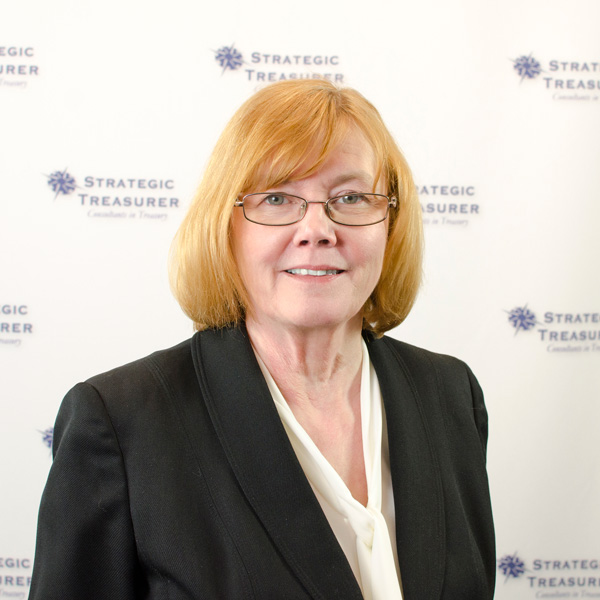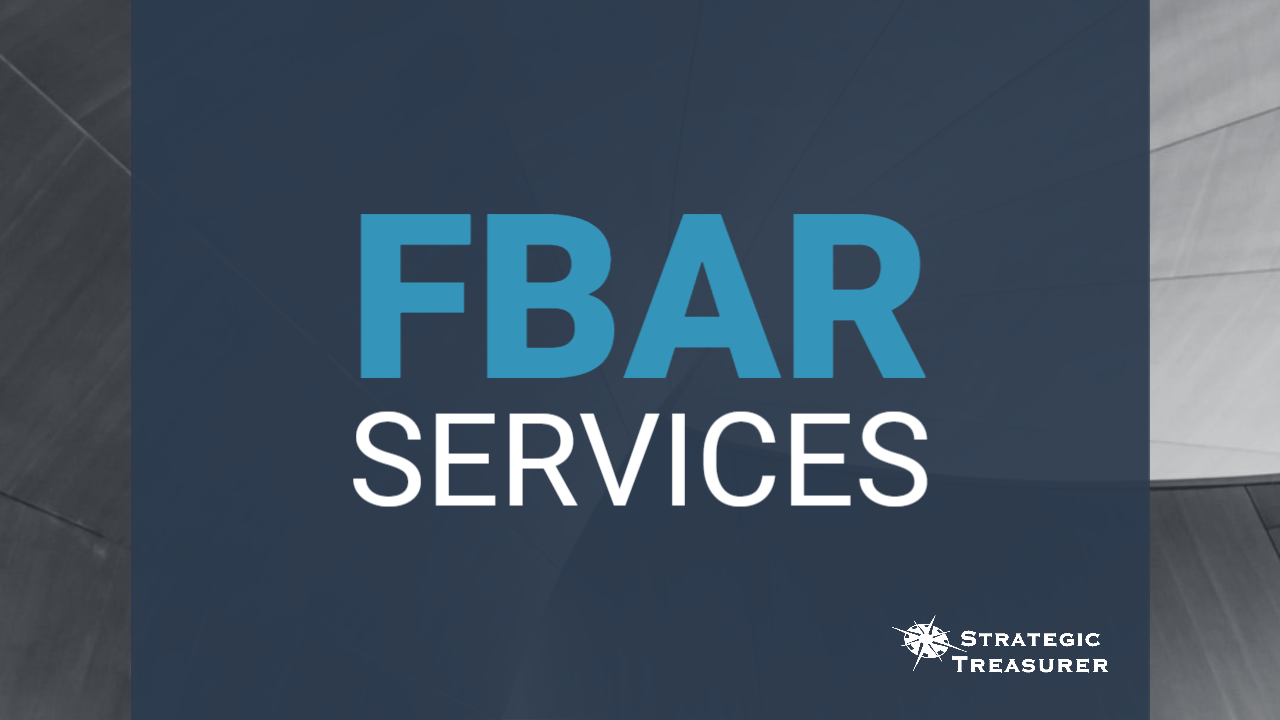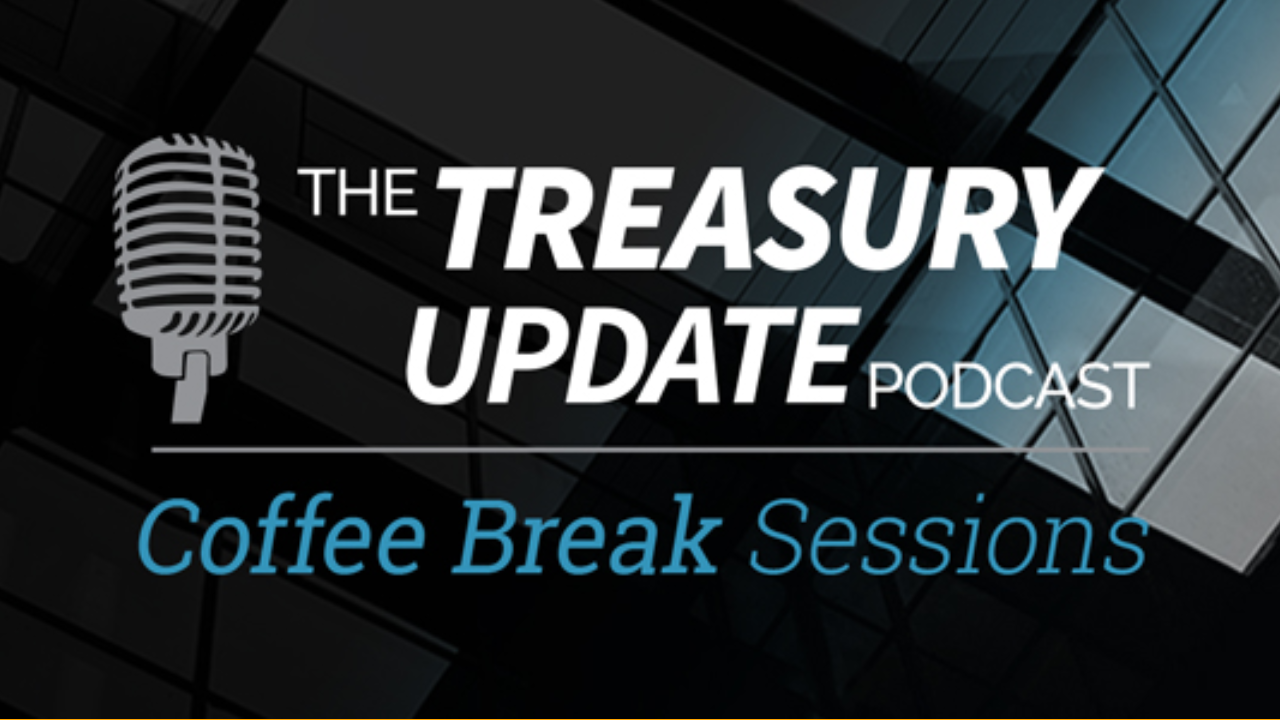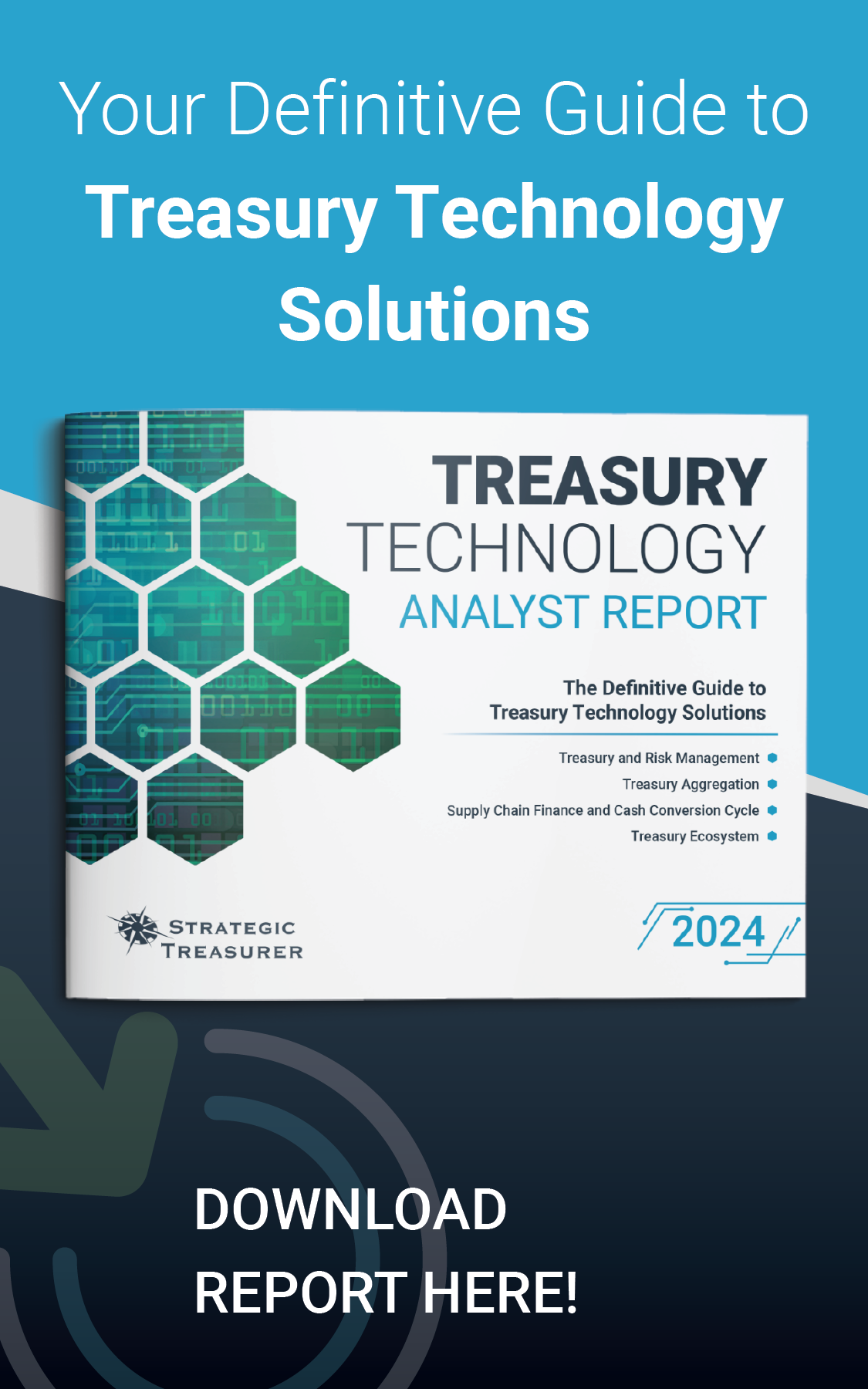
Session 08
What is FBAR?
What is FBAR? Coffee Break Session Host Alexa Cook sits down with Melody Hart, Senior Consultant at Strategic Treasurer to discuss FBAR on a high level. They define FBAR and discuss who is required to file and the repercussions one can face for not filing. Listen into this short discussion on FBAR.
Host:
Alexa Cook, Strategic Treasurer


Speaker:
Melody Hart, Strategic Treasurer


Episode Transcription - CBS Episode 8 - What is FBAR?
Alexa Cook:
Hey guys, welcome to The Treasury Update Podcast Coffee Break Sessions, the show where we cover foundational treasury topics and questions in about the same amount of time it takes you to drink your coffee.
Alexa Cook:
Hey everyone. Welcome to The Treasury Update Podcast Coffee Break Sessions. This is Alexa, Consultant at Strategic Treasurer and today’s podcast host. And today I’m joined with Melody Hart, another Senior Consultant with the Strategic Treasurer team who’s I think a great guest for today’s topic, which is what is FBAR? And I’ll tell you why I think she’s a great guest. She’s got a lot of previous treasury experience. She was previously a treasurer, and just through her course of treasury and special project work, she’s been exposed to FBAR time and time again, and that sort of made her our resident expert at it. So welcome, Melody.
Melody Hart:
Thank you.
Alexa Cook:
Just to jump right in, let’s maybe start with what is FBAR?
Melody Hart:
Well, FBAR is a requirement. It’s the government’s way of getting you to report what foreign bank accounts you have.
Alexa Cook:
Okay. Now is this for corporations or is this for individuals?
Melody Hart:
It’s for both. There’s three prongs, I’d say. One of them is that the corporation has to report their foreign bank accounts, and the other one is that the individuals who own a foreign bank account themselves have to report. And the third part, which is the most difficult one, is that individuals who have signing authority on a bank account of a corporation, but they have no financial interest in it, those accounts must be filed with them as signer. Individuals have to file, although in reality, mostly the corporations file on the individual’s behalf.
Alexa Cook:
Really, it’s corporations, any corporate bank account that you might hold outside of the US.
Melody Hart:
Right.
Alexa Cook:
And then it’s any individual. If me, myself, if I had a bank account in Germany, then I would have to report under this?
Melody Hart:
Yes.
Alexa Cook:
And then a hybrid of the two, any corporations that have somebody as a signer in one of those foreign bank accounts, then they would have to file too.
Melody Hart:
Yes. It’s a little bit more complicated even, because the definition of signer is a person who alone or in conjunction with someone else can disperse funds. That would include people who have wire authority. Initiators and approvers of wires are also considered signers for the purposes of FBAR.
Alexa Cook:
Okay. That’s interesting. I don’t know that I knew that, and I feel like I have a decent amount of FBAR exposure. Anybody that can actually disperse funds.
Melody Hart:
Right.
Alexa Cook:
Okay. What started FBAR, or when did this begin?
Melody Hart:
In 2010 was the first year. Of course, many people did not report because people were not really aware of it. So sometimes people started reporting in 2015, let’s say, and they had to report multiple years, which makes it much more hard because you have to go back and make sure you have the records and, “Well, what were we doing? We have to go back to the bank.” It makes it harder if you’re having to go to the past to do it.
Alexa Cook:
What kind of requirements? What are we filing when we file for FBAR? What does that mean? I know it’s the corporations and the people, but what kind of data are we filing?
Melody Hart:
Okay, for a corporation’s aspect, you’re filing the entities, the entity tax number, the bank account number, the highest balance. Except that if you have more than 25 accounts, you’re allowed to just put in the entities that hold the foreign bank accounts. If you have less, you have to report all of them. Although there is a concern that there’s been talk of making corporations and individuals report all of them, even if they have more than 25.
Alexa Cook:
Ooh, that would be a big change.
Melody Hart:
That would be.
Alexa Cook:
Certainly impactful.
Melody Hart:
Hopefully it won’t happen, but that is a possibility.
Alexa Cook:
Yeah. You touched on it already by saying that this started in 2010, but I don’t think the real filing deadlines were until maybe 2015, so why is that such a big gap for the filing deadline, and has that deadline changed, and why does it keep changing if it has?
Melody Hart:
It changed a lot. It isn’t changing now, but it had changed every year. They’d delay it a year. You still had to go through all the past ones, but it was problematic because companies had trouble. They weren’t exactly tracking all of their bank accounts very easily. Some weren’t tracking them at all. Others had them dispersed and were decentralized, and they had to figure out how to get the information, including the highest balance and who the signers were. All of that took a lot of effort to try to get the discipline in the corporation to have the information available. That’s taken a great deal of time. And if they don’t have a treasury management system or a bank account management system, and they’re doing it by spreadsheets or doing it with paper, it becomes a cumbersome task. That’s why it was delayed so long, and now you do have to report.
Alexa Cook:
Right. Okay. It sounds like it was almost a big change management piece, because this is just something that was never on the radar. And then when it became on the radar, it wasn’t the simplest thing to report so then they allowed for more time, and that just is continuously changing, I guess.
Melody Hart:
Yeah, and it’s a scenario where it’s not something anyone likes to do. It’s very administrative. No one likes to have to track this, but they should be tracked anyway. I mean, you should know who your signers are and where they are at.
Alexa Cook:
Right.
Melody Hart:
It has instilled some discipline.
Alexa Cook:
Since this is such a difficult task, are there any repercussions if you’re not reporting this, or what happens if you aren’t filing and you’re required to?
Melody Hart:
Yeah, well, failure to file can carry a civil penalty of $10,000 for each non-willful violation. However, if your violation is considered willful, the penalty is the greater of $100,000 or 50 percent of the amount in the account for each violation. That’s for each account you did not report.
Alexa Cook:
Wow.
Melody Hart:
That can be pretty big.
Alexa Cook:
Yeah. I guess if you have many accounts at one bank and you’re just like, “Oh, I forgot I had this bank account,” and you didn’t file it, and then they find out later, and let’s say you had six accounts, it’s 50 percent or $100,000, whichever is greater of each account?
Melody Hart:
If it’s willful.
Alexa Cook:
Right, right, right. So not if you forgot, but if you said, “Oh, I’m definitely not going to tell them about this set up bank accounts I have.” Okay.
Melody Hart:
Right.
Alexa Cook:
Wow, that’s hardcore.
Melody Hart:
But if you did just forget, then it’s $10,000 per account, but that’s still $60,000 if you had six accounts.
Alexa Cook:
Yeah, that is a lot. Wow. Is there anything else you want to add on FBAR before I wrap this up? I feel like we’ve covered a lot.
Melody Hart:
I think we’ve covered a lot. Yeah, it’s got some penalties no doubt, but it’s a important move. They have to do this. They’re trying to track money laundering. They’re trying to track to make sure people are paying taxes where they should and not hiding money, so it’s a necessity that they have this.
Alexa Cook:
Okay. If I regroup it, the requirement is for corporations and individuals to file this if they have any bank accounts held overseas. In addition, the corporates have to list any of the signers and file either on their behalf or provide them with the information to file. And again, signers are those that can even disperse funds. That’s people with just wire, right?
Melody Hart:
That’s correct. But what they’re really after is they’re after US citizens or resident aliens. You don’t have to report foreign signers.
Alexa Cook:
Okay. And then this is a federal requirement that’s been around for about a decade, and there are definitely ramifications if you’re not filing this.
Melody Hart:
Yeah. It’s supposed to be filed by April 15th. If you’re an expat, I believe it’s June 15th. And you get an automatic extension to October 15th.
Alexa Cook:
Okay. In both instances, local and expat?
Melody Hart:
Yes.
Alexa Cook:
Okay. All right. Well, I think that covers it. Melody, thank you for joining me on today’s podcast on what is FBAR? It was great to have you.
Melody Hart:
Thank you.
Alexa Cook:
For our listeners, feel free to tune in every first and third Thursday of the month for a new Coffee Break Session podcast release. And again, if you ever want to reach out with any comments, questions, topic ideas or anything like that, you can send us an email at podcastat@strategictreasurer.com.
OUTRO:
This podcast is provided for informational purposes only, and statements made by Strategic Treasurer, LLC on this podcast are not intended as legal, business, consulting, or tax advice. For more information, visit and bookmark strategictreasurer.com.
Related Resources
Strategic Treasurer’s FBAR Services
Strategic Treasurer’s Compliance Team can take on the burden of FBAR, freeing you up for high-level activities and decisions, while keeping you up-to-date and compliant.
A part of the Treasury Update Podcast, Coffee Break Sessions are 6-12 minute bite-size episodes covering foundational topics and core treasury issues in about the same amount of time it takes you to drink your coffee. The show episodes are released every first and third Thursday of the month with Special Host and Treasury Consultant Alexa Cook of Strategic Treasurer.




